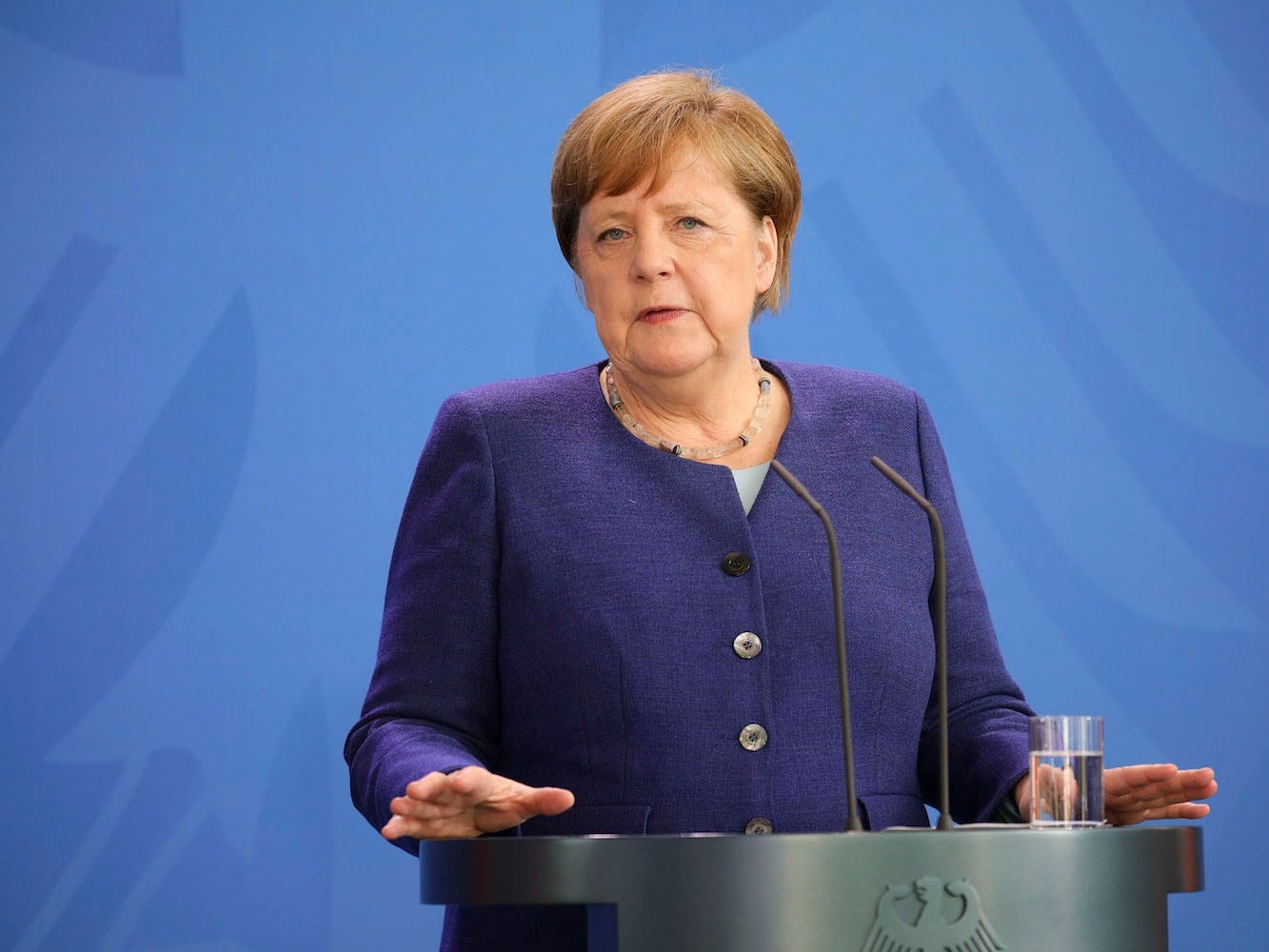- Germany launched a fresh $146 billion stimulus to help the economy navigate through coronavirus.
- As part of the plan, VAT will be slashed from 19% to 16% for six months as of July 1.
- The rescue plan also includes a $56 billion fund for climate change innovation and digitization in the German economy.
- The plan was expected to be worth a maximum of $112 billion.
- The EU published its own plans for an $826 billion continent-wide coronavirus rescue package last week.
- Visit Business Insider’s homepage for more stories.
Germany agreed to a fresh domestic stimulus package on Wednesday worth $146 billion ($130 billion euros), even higher than the maximum amount that had previously been expected, and just days after the Europe unveiled its own $826 billion blue print.
German Chancellor Angela Merkel said during a news conference after the coalition announced the stimulus: “The size of the package will amount to 130 billion euros for the years 2020/2021, 120 billion of which will be spent by the federal government.”
Merkel added: “We have an economic stimulus package, a package for the future, and in addition, we’re now dealing with our responsibility for Europe and the international dimension,” she noted.
Merkel’s Christian Democratic Union party, as well as coalition partners the Christian Social Union and the center-left Social Democrats agreed on the measures.
The main value-added tax (VAT) will be temporarily slashed from 19% to 16% for six months as of July 1, Merkel said.
The usual hospitality VAT rate will also drop during this period, from 7% to 5%.
Other measures include providing families with an extra 300 euros per child ($336) and doubling rebate on car-buyer bonus scheme.
The rescue plan also includes a 50 billion euros ($56 billion) fund for achieving climate change innovation and digitization in the German economy.
Earlier this week it emerged that the Social Democrats were in favour of spending closer to 100 billion euros ($112 billion), while Merkel was keen to keep the new stimulus limited as Germany already launched a programme in March when coronavirus began spreading.
But the announcement is the latest evidence that Merkel has bowed to pressure due to the devastating impact of the pandemic.
Germany plunged into recession at the start of 2020, with Europe's biggest economy shrinking 2.2% in the first three months of the year, according to data released Friday by the German statistics authority.
The European Union last week proposed a recovery package valued at 750 billion euros (about $826 billion), to help the 27-member bloc survive the economic carnage of the coronavirus pandemic.
The official process for negotiations will kick off with informal discussions between the European governments, followed by the first formal discussion in the Eurogroup on June 11.
